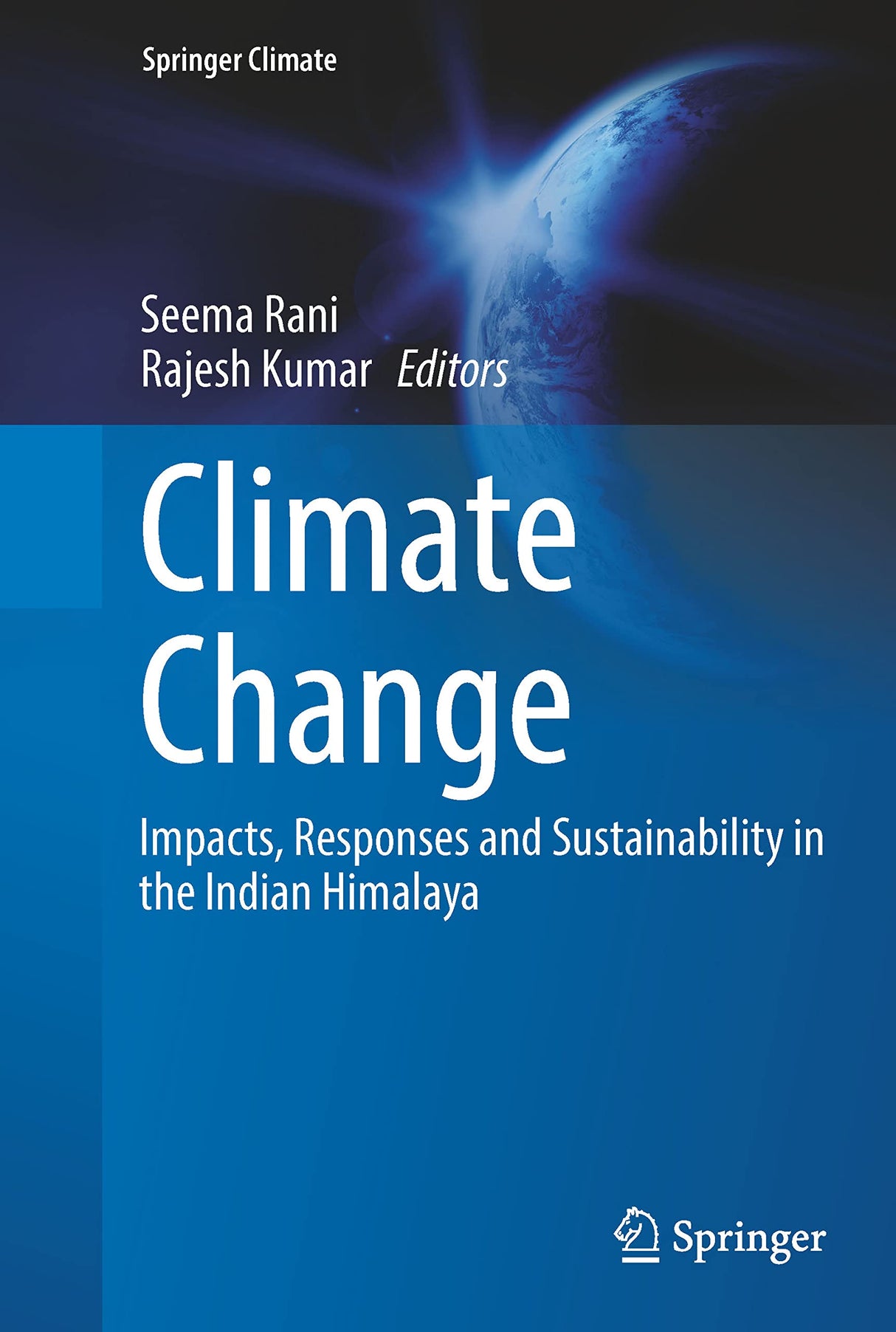CLIMATE CHANGE: Impacts, Responses and Sustainability in the Indian Himalaya
CLIMATE CHANGE: Impacts, Responses and Sustainability in the Indian Himalaya is backordered and will ship as soon as it is back in stock.
Couldn't load pickup availability
Genuine Products Guarantee
Genuine Products Guarantee
We guarantee 100% genuine products, and if proven otherwise, we will compensate you with 10 times the product's cost.
Delivery and Shipping
Delivery and Shipping
Products are generally ready for dispatch within 1 day and typically reach you in 3 to 5 days.
Book Details
-
Author: Seema Rani, Rajesh Kumar (Eds)
-
Publisher: Springer
-
Language: English
-
Edition: 2023
-
ISBN: 9783031261664
-
Pages: 356
-
Cover: Hardcover
About the Book
This comprehensive and timely book addresses the pressing issue of climate change and its impact on the Indian Himalayan region. The Indian Himalayas, a critical ecological zone, are under immense pressure due to the changing climate, affecting not just the environment but also the livelihoods and health of the people who live there. This book provides the latest scientific and technical knowledge on climate change impact assessments, adaptation, and mitigation strategies specifically tailored to this unique region.
The work is a collection of scholarly articles that examine various facets of climate change within the Indian Himalayan context, from hydrological trends and glacial variabilities to their broader environmental and socio-economic implications. The contributors highlight significant issues, such as glacier retreats, water resource changes, and the cascading effects of these on local communities. Topics such as climate change-induced forest shifts, the impact on biodiversity, agroforestry, and carbon storage potential, and the governance and policies addressing climate challenges are meticulously analyzed.
Not only does this book offer valuable insight into the climate-related challenges in the region, but it also provides a platform for understanding the role of indigenous knowledge, sustainability efforts, and innovative governance policies. It emphasizes the importance of strengthening global responses to climate change while also focusing on the local realities of the Himalayan region. The book serves as an important resource for researchers, students, and policymakers working on climate issues, offering an evidence-based framework for understanding and addressing the challenges posed by climate change in one of the world's most vulnerable regions.





